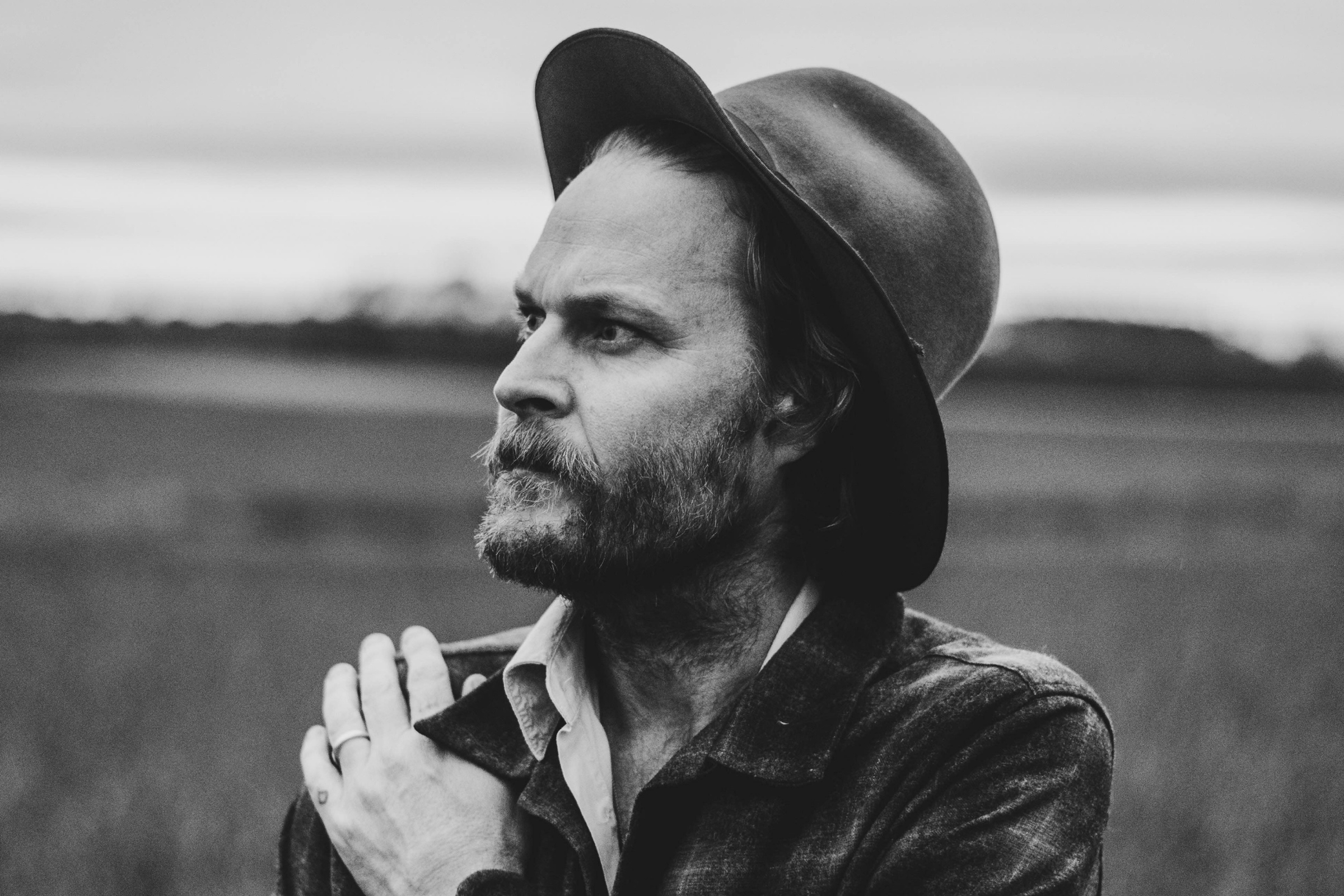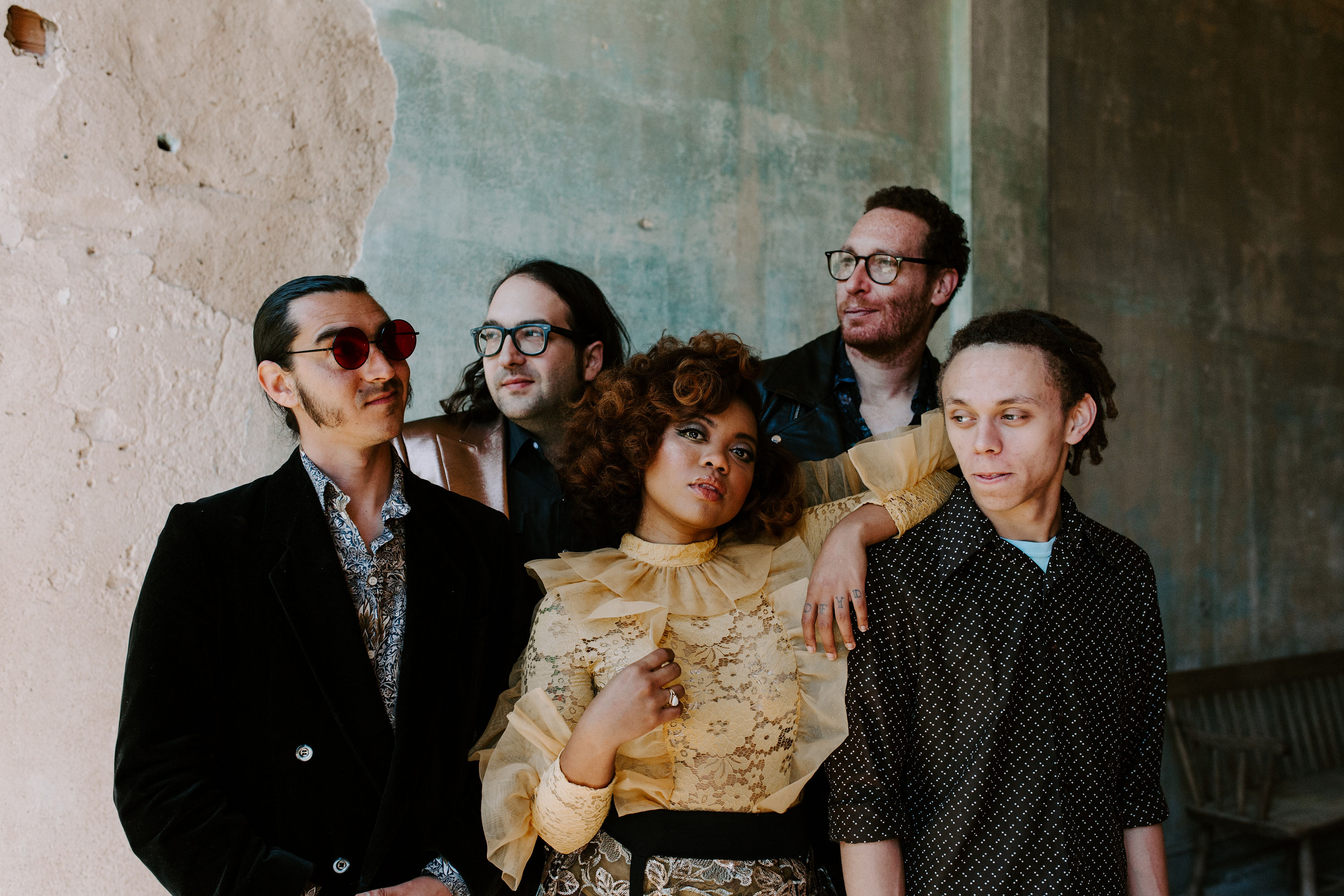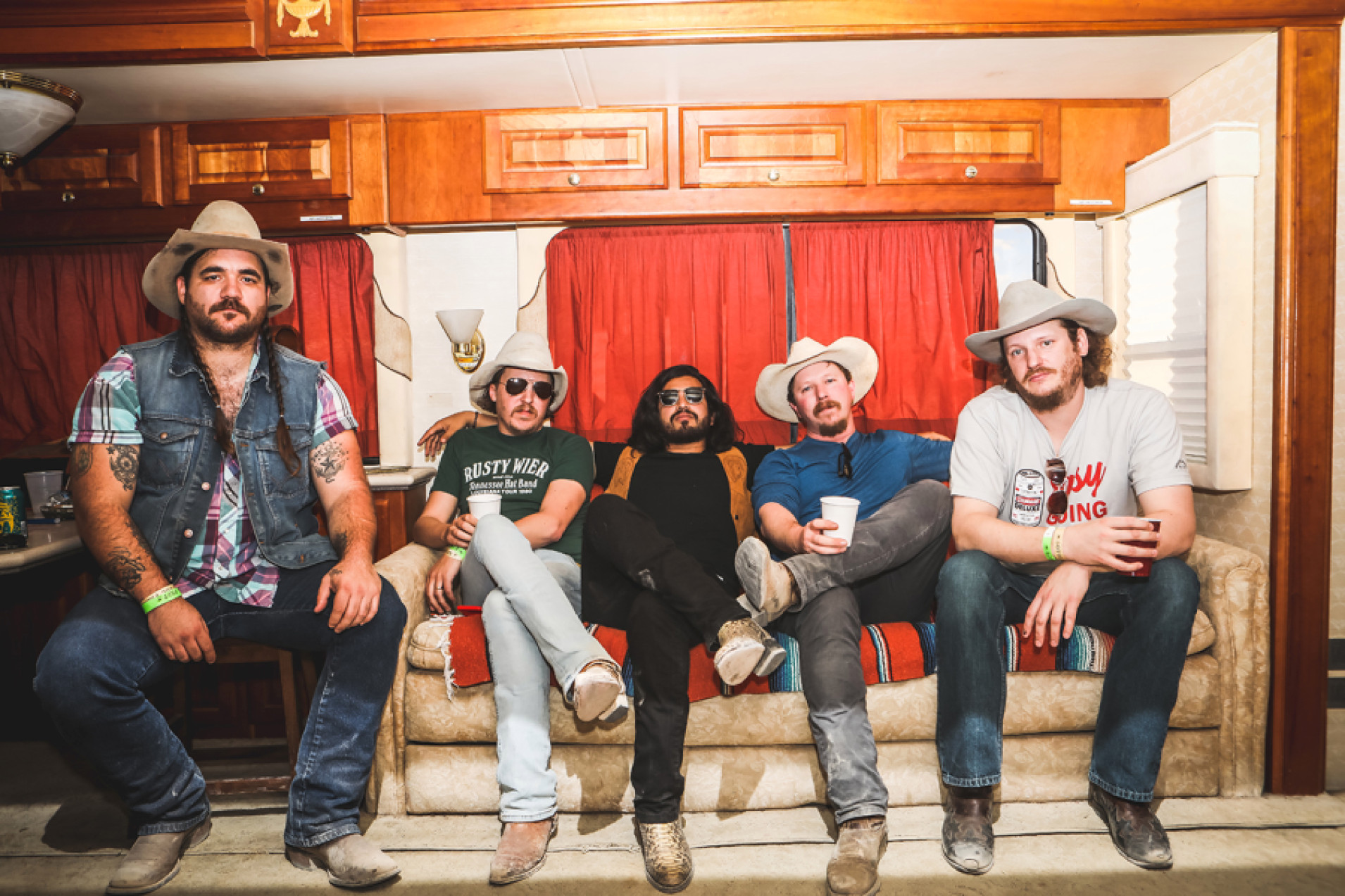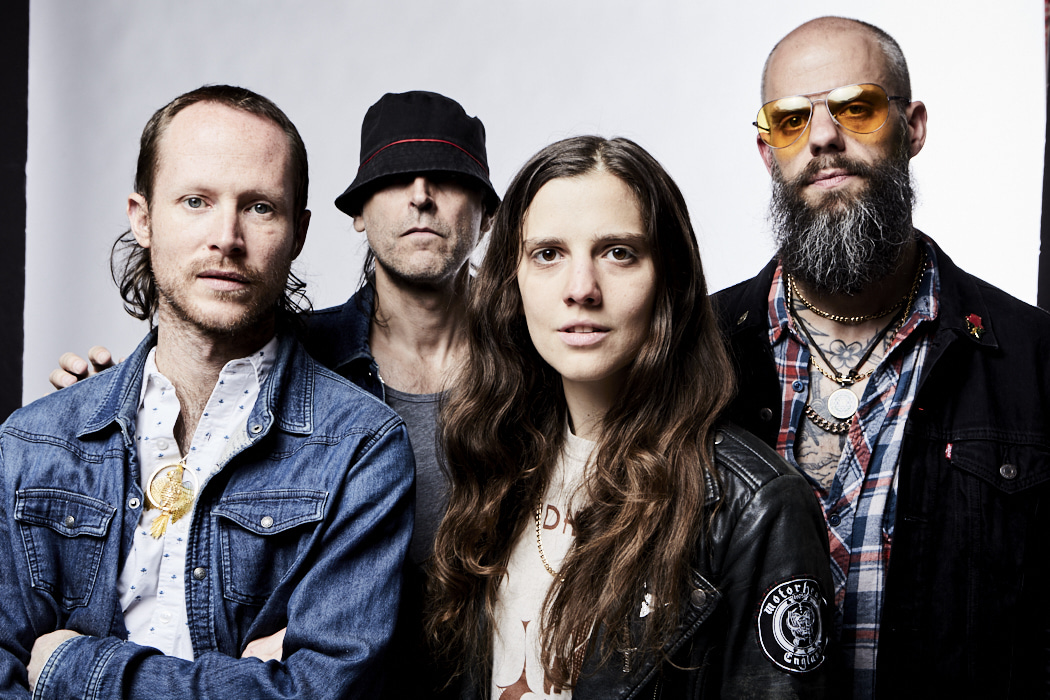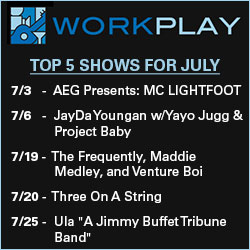Aaron Lee Tasjan returns to Birmingham on Saturday
Influenced by Todd Snider much the way Snider was influenced by Jerry Jeff Walker, Aaron Lee Tasjan’s sound is constantly evolving. He’s lumped into Americana, but he assures that’s just rock and roll. His latest effort, Karma for Cheap, was praised as one of 2018’s best efforts, and he already has plans to reimagine the record and re-release a new version; more acoustic, grittier and raw. The prolific artist that is spending some of this run of shows opening for Alabama’s Jason Isbell and the 400 Unit (New Orleans on Friday, Tupelo on Sunday) also already has a follow-up record ready to go, and he says to expect that by 2020.
He talked about Snider’s influence and finding his own voice. He talked about his accidental path to learning that he was a songwriter.
What was the path that led you from your hometown in New Albany, Ohio to Nashville and why was that best for your career?
When I graduated from high school, I moved to New York; mostly lived in Brooklyn while I was there. I lived there for about eight and a half years. I was working as a guitar player that whole time. I was starting to do a fair amount of touring gigs and it just kind of felt like it was a real waste of money to be spending $2,500 a month on an apartment that I wasn’t staying in for half of the year. I had done a couple of tours with Todd Snider, and Todd was always saying, “Hey man, you’ve got to come down and check out East Nashville. The vibe is really cool.”
So about five and a half years ago – really as it was just kind of starting to explode – I moved to East Nashville. Initially the reason was financial, but I sort of became a singer-songwriter because I moved to East Nashville. For whatever reason, I wasn’t finding a bunch of work as a guitar player when I got to town. I’d always written songs, and I thought, “Well, maybe I can do something with this somehow.” I made my first record just to show people that I could write songs. [laughs] I never expected to do that for a living, but it all sort of started to happen. Classic story – I gave the record to a friend or two that just happened to be in the music business. Ann Powers [NPR] was writing about it and Rolling Stone was reviewing it and all of a sudden, it was like, “Wow. I guess I made a record that people seem to be interested in.” From my vantage point, quite a happy accident.
I first saw you at an in-the-round with Caleb Caudle and John Moreland at Standard Deluxe in Waverly about four or five years ago, and my initial impression then was that you were heavily influenced by Todd [Snider]. But you’ve evolved into something much different. How has that happened?
I would say that Todd was the road map for how to do it, as far as playing, performing and how to play a show. I didn’t have a band at the time; I always envisioned myself having a band, but I didn’t at the time. So I thought that Todd was a great example of a guy that played a show that still felt like rock and roll to me, but it was just him and a guitar. Which, I guess he would have gotten from Jerry Jeff Walker. I studied Todd and I studied John Prine a lot and I studied Guy Clark a lot.
When you’re a songwriter, a lot of times your first efforts are kind of amalgamations of your influences. Then, once you figure out how to do that, the next thing becomes in your mind, “Okay. That’s great. But what do I sound like?”
Some people have that right out of the gate. Other people, it seems like they shift to that at a later time. I’m continually asking myself, “Does this sound like me?” Finding out the answer to what that question was has been a part of making both Silver Tears and Karma for Cheap.
You said that you spent much of your 20s thinking that you were just a guitarist. How old were you when you knew you were a songwriter?
It was something I had always done – writing songs. My friends seemed to appreciate it and think I had a talent for it. I was always comparing my stuff to people like Todd or on the more commercial side of things, maybe Tom Petty or Elliott Smith or Richard Swift. I would listen to my songs and then I would listen to their songs and I would just be like, “Well, these are obviously way better than mine. I’m not going to walk around calling myself a songwriter.”
It’s really when I got to Nashville. It’s funny – people are always calling Nashville “Guitar Town,” and it is, obviously, a guitar town. But I think more than anything, it’s a songwriter town. The encouragement that I received from my friends – people like John Moreland and Margo Price and my friend Brian Wright – people here in town whose songs I really revered thought that I had something to say as a songwriter. That felt encouraging to me and made me want to continue to try to write better songs. I was probably 27 or 28 when I started figuring out, “Okay, maybe this is something I can something more with.”
How have you and your peers found a way to coexist with the mainstream country radio version of Nashville that most outsiders know?
It’s probably less relevant to a guy like me than it would be to someone like Margo Price or maybe Sturgill. Although I know he goes a long way these days to point out that he’s not a country singer. I would never have a place in country radio. My music isn’t nearly country leaning enough to be considered some sort of country music. There are songs that have country leanings of mine – like “The Trouble with Drinking” or “Memphis Rain” – but every rock band has those songs. The Rolling Stones have “Faraway Eyes.” Tom Petty and the Heartbreakers have “Louisiana Rain.” There’s even a song on the latest Kurt Vile record that kind of sounds vaguely like some kind of old country song, but isn’t. Rock and roll in its purest definition is a mix of country and blues and all these different kinds of music coming together. That’s what my music is – my music is Americana in terms of the definition of Americana has become, which is something that encompasses a few different kinds of genres at the same time.
But I think that word only happened because rock and roll has become a confusing thing for people. The Foo Fighters or whatever is rock and roll, and if rock and roll is not going against something, it’s not rock and roll. See, I tend to think the Foo Fighters have the rock part, but the don’t do any of the roll. For me, it’s got to have both. And you have to be saying something in the song that’s not necessarily controversial, but it’s got to have some danger to it. Even Harry Nelson, who I think most people would think of more as a ballad singer, but he made rock and roll records. He said some pretty wild stuff and did it in a way that was pretty wild. I’m thinking specifically of the record that John Lennon produced on him where they do a cover of a Jimmy Cliff song – “Many Rivers to Cross.”
A lot of my references for music are older things. But that’s only because, to me, that’s the time that rock and roll existed. I’m in a way a retro artist. I’m not sitting around trying to capture the sounds of yesteryear or anything like that, but if my music has something in common with that, it’s that it is tried and true rock and roll.
Talking about music is more of a challenge now than it used to be because the idea of genre became more important. And it’s not just in terms of music journalism. We see it as musicians with people that book shows. People will call me up and say, “We want to book Aaron.” And it’s like, “Okay, great, let’s do it.” And the openers they will suggest will be a bunch of people in cowboy hats with spurs on. It’s like, “Have you even listened to my records before?” [laughs] But they see Nashville as part of your name – as anyone would – and they think this guy must have some sort of dog in the traditional Nashville fight. And some artists fit that – like Margo and Sturgill. Me? I’m kin doing my own weird thing that doesn’t really fit in much of anywhere. Which has been a challenge, to be honest. [laughs] But every day that I wake up and I’m above ground is a great day. The truth of the matter is, the one thing that I believe in more than anything in the whole world is rock and roll. And a day that I get to bring my version of that to somebody is the greatest day in the world to me.
You talked about your path to finding your own voice. Do you think that has been fully realized or is that something that continues to evolve?
I think any musician that ever thinks their voice is fully realized is probably drinking their own Kool-Aid a little too much. It takes time to become a master and you only really find out the answer to that question at the end. Think about the career of a guy like John Prine, who has obviously been making brilliant work throughout his entire career. But only recently have we been able to sort of all come together, “Yo, this guy is a genius. And he’s worthy of heaps of praise that we seem to cast on people that, as talented as they are, don’t have half the quality of creation invested into this that a guy like John Prine does.”
For me – as a guy that’s planning on doing this for as long as I can stand upright and hold a guitar or sit at a piano and sing – I feel like that’s really inspiring. Here’s a guy who is at what most people may view as the end of his career, it’s really just ramping up. That’s kind of what it’s all about. Music to me is a great parallel to living life and trying to be alive and being a good person and showing character in the face of great circumstances. The music business often provides those. The opportunity to create and share that with people and figure out through the artistic process – which for me can be very revealing of how much of an [expletive] I really am [laughs]. It’s gratifying in many ways. I have a song called “Success,” where the chorus goes, “Success ain’t about being better than everybody else/It’s about being better than yourself.” I believe that music was a huge conduit for me to being able to feel like that every day and live my life that way. I’m really grateful for it.
Aaron Lee Tasjan comes to Saturn on Saturday, March 30. The Minks and Ryan Sobb open. Doors are at 8 p.m. and the show is at 9 p.m. Tickets are $15.



